RUSH: Now, this other thing that I want to get into — I’m not gonna get into it now. I hope to get to it today, but I’ve got a lot here I want to get to. I ran into a piece at an obscure website, and the title of it intrigued me. It said there are no natural resources. And, at first glance, it appeared to be one of these things that would be way, way too in the weeds to try to synthesize and explain and use as a topic or an issue-related talking point here on radio.
But the more I read this, the more I discovered that it is right on the money and it prints out to four pages, and I’m gonna be able to synthesize this, all of it down to less than one page. It is the epitome of optimism. It has all kinds of reassurances. You know, one of the things that the left has succeeded in doing is scaring Millennials.
 I cannot emphasize enough how much young people really believe this planet has a limited number of days of habitat for humanity remaining. They have so bought into the apocalypse of climate change that it is something that to many Millennials, more than you would ever know, actively scares them every day, has them upset every day. They have been propagandized.
I cannot emphasize enough how much young people really believe this planet has a limited number of days of habitat for humanity remaining. They have so bought into the apocalypse of climate change that it is something that to many Millennials, more than you would ever know, actively scares them every day, has them upset every day. They have been propagandized.
They have been so indoctrinated with the pessimism of their own demise, their own destruction, that other human beings, their parents and grandparents and great-grandparents have caused. They are told that we’re gonna run out of natural resources in five years, 10 years, 15, 20 years, that we’ve gotta get a handle on the population. We cannot possibly sustain life supporting systems on this planet with any more people on it. We simply can’t.
They have been inundated with apocalyptic point after apocalyptic point. And you can’t blame them. They’ve been assaulted with this from the very earliest of their formative years. And this pessimism and this apocalyptic tint to everything, it works. Pessimism sells. Crisis creates immediate attention spans.
And what has accompanied all of this is the inclusion of the possibility of redemption. We might be able to save the planet. We might be able to sustain life supporting systems “if.” And the if requires that all of these kids that bought into this stuff essentially support socialism. Socialism, not by name, has been presented as the salvation or the solution, government running things. They must accept the belief that their activities and the activities of their parents and grandparents have led to the near end of life supporting systems on the planet.
They can be redeemed, however, if they admit to this and then take immediate steps to live different lives than their parents, grandparents, and great grandparents did. And there are so many people that have fallen for it that it’s scary. And a great example — remember Paul Ehrlich? We talk about him occasionally.
I remember back in the early seventies, I’m in Pittsburgh, I’m 20 years old, 21 years old. The program director of the radio station I’m working at went out and bought a bunch of copies and gave them to all of us deejays and said, “You gotta read this. This is so important.” You know what the book was? The Population Bomb.
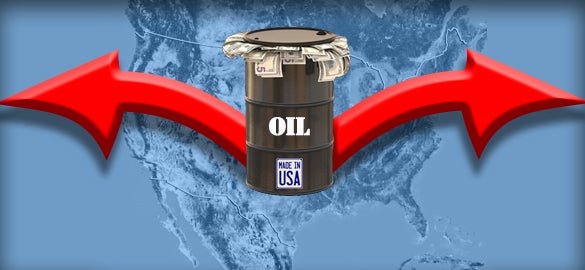 And it was about how humanity could not survive beyond the year 2000 or 2010 if it continued to use up natural resources at the rate. So it was a book that heralded and promoted any mechanism whatsoever to limit the number of humans born, conceived, alive on the planet. And it is shocking.
And it was about how humanity could not survive beyond the year 2000 or 2010 if it continued to use up natural resources at the rate. So it was a book that heralded and promoted any mechanism whatsoever to limit the number of humans born, conceived, alive on the planet. And it is shocking.
Now, I never fell for it. I had a great foundational upbringing. I never fell for it. I thought it was bogus from the get-go. But I was the only one. Because pessimism sells. Apocalyptic predictions penetrate people’s boundaries. Today, Paul Ehrlich is still alive, he’s still involved at Stanford. He’s still teaching this stuff. He’s been proven wrong so many times, you can’t count it, and he remains a gospel-like guru.
Now, this piece that I stumbled across illustrates and points out how in fact there really aren’t any natural resources. If you’re intrigued by that, I don’t blame you. There are no natural resources.
The point of this piece is human creativity, human innovation, human exploration, the basic structure and existence of the human being overcomes all of these apparently apocalyptic doom and gloom scenarios because the way around so-called limited resources is the human mind. And I will explain how the piece details that when I finally get to this. In the meantime, a brief time-out now, we’ll get back to the phones after this.
BREAK TRANSCRIPT
RUSH: No, no, no. I’m just telling you, every sci-fi book, every sci-fi movie is about the upcoming dystopia. The Handmaid’s Tale, all of this stuff, sci-fi movies that you never heard of, Marvel stuff that you’re never heard of that young people are watching today, they are bombarded with the end of the world, the end of America, and it’s all being caused by certain people. And it’s not that an individual movie here or there has a deleterious effect, but if it’s a constant, overwhelming assault on the senses.
I remember when this program started back in 1988, John Fund was doing pieces about the upcoming danger of kids doing nothing but playing video games. He was worried about the kinds of things that were being programmed into the games, manufactured in China, you know, by the ChiCom government. He was concerned about the dumbing down and the erasing of sharpness around the brain with a constant exposure to video games and so forth.
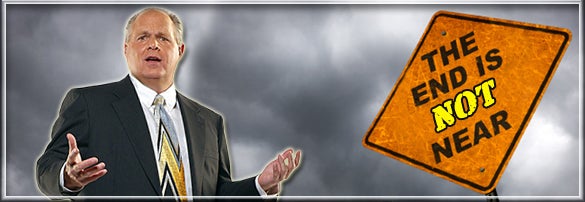 People laughed, “Come on, John, it’s just kids being kids. It just replaces other childlike activity that kids did before video games came along. Don’t worry, John, everybody’s gonna adjust to it.” Well, now video games have morphed into social media. And I don’t think there’s anybody who thinks that social media is just an innocent little aspect of our culture. But look, I think we can overcome and triumph over all of this. We always have. We can’t ignore it is the point.
People laughed, “Come on, John, it’s just kids being kids. It just replaces other childlike activity that kids did before video games came along. Don’t worry, John, everybody’s gonna adjust to it.” Well, now video games have morphed into social media. And I don’t think there’s anybody who thinks that social media is just an innocent little aspect of our culture. But look, I think we can overcome and triumph over all of this. We always have. We can’t ignore it is the point.
Now, I’ll get to this other piece on the resources, ’cause it’s just fabulous. It’s the kind of thing, it’s the kind of daily awareness and reminder everybody needs about the positive aspects, the goodness and the decency of a free and functioning human mind and how amazing it is.
The first thing that comes to mind, the first illustration of this — and I’m getting a little ahead of myself here — go back 10 to 15 years or however far back you have to go, when you first remember being told that we’re gonna run out of oil and thus gasoline and home heating oil and every derivative of oil, we’re gonna run out of it maybe in your lifetime or maybe in a hundred years or maybe in 200 years. And ask yourself, did you believe it? Did it worry you, did it scare you? Because you do believe it, experts report this stuff, people end up believing it.
And then we were told that oil was a fossil fuel and as a fossil fuel it of course was limited ’cause there are only so many dead animals that we could dig up that have been fossilized that then created wherever they roamed the earth, these deposits of so-called fossil fuels. I mean, the supply of dinosaurs, for example, was not infinite. And so the supply of fossil fuels was infinite, and we were gonna run out at some point, and that led everybody to conserve. We lowered speed limits to 55, gasoline prices skyrocketed. We had contrived shortage.
All of this stuff, it was all part of the psychological game that was needed to make people believe in the finite supply of things, and the reason for that was ultimately to raise prices on it all. But you don’t hear about that anymore, because the whole idea that I’ll comes from fossilized dinosaurs is gone. Oil is being produced all the time. The earth is making oil everywhere. We just have to find it.
Remember it wasn’t long ago the United States, you would hear this in political campaigns every year, “We’ve got to do something about the dependence on foreign oil. We are too subject to the whims of people who hate us, like the militant Islamists in Saudi Arabia.”
How many campaigns did we put up with this, that we had no oil, that American oil wells are being capped because producers couldn’t make any money, they’re being capped forever. U.S. oil production plummeting, down to absolutely nothing. We’ve become totally dependent on Saudi Arabia or anywhere else we could buy it, the Russians.
From then — and that’s not very long ago — we are now among the largest exporters of oil and producers of oil in the world. Now, how did this happen? How did we go from being total prisoners and totally dependent on the Saudis to now having more oil than they do? How did it happen? A simple invention called fracking, invented and created by the human mind.
We went from a belief of finite fossil fuel resources, so finite that your grandkids might run out during their lifetimes, to now we are presented with an abundance of those same fossil fuels and abundance of oil to the point that we have become among the largest producers in the world. How does that happen?
 Well, was the first assertion true? Was there ever really a finite supply or is that just another typical scare tactic put out by people who want to control other people’s minds? Or did the people who told us this however long ago really believe it? Did they really believe that there was only 200 years of oil left and boy we need to really develop those windmills, Rush, and we need to really get those solar panels, Rush, because we’re gonna run out of oil.
Well, was the first assertion true? Was there ever really a finite supply or is that just another typical scare tactic put out by people who want to control other people’s minds? Or did the people who told us this however long ago really believe it? Did they really believe that there was only 200 years of oil left and boy we need to really develop those windmills, Rush, and we need to really get those solar panels, Rush, because we’re gonna run out of oil.
Really? Now we’ve got all this investment in alternative energy that is not sensical, it doesn’t make any economic sense whatsoever. The amount of public land that would be required to create a bunch of wind farms or solar farms to come anywhere close to what oil gives, it’s not possible. We don’t have enough land. And what would it look like if it were nothing but solar panels or giant giant windmills? It’s totally insufficient.
There isn’t anything out there that we have now that will replace oil, including Tesla batteries. There’s nothing. Thank god some people didn’t fall for this. So now we have fracking. We have found a way to get oil out of rock, folks. We haven’t had to go dig for deep deposits where we thought the dinosaurs once roamed. I’m kind of mocking this because some people really believe, when they heard fossil fuels, that they meant direct descendants of dinosaurs and there are only so many dinosaurs so that meant we were gonna run out of oil. There’s so many myths that have been attached.
The point is the earth continues to make oil. It has to. It has to or we would have a finite supply. But we don’t. It’s making it somehow, and we can find it somehow. It’s in places even today we don’t know how to go get it at an economically feasible price. How do you get the oil that’s 20,000 feet below the ocean floor? How do you do that and make money doing it? But someday we’re gonna be able to. And someday we’re gonna create something that runs on an energy source that’s not oil. We’re nowhere near there, but it will happen, and it will happen because of the human mind.
The human mind is the greatest resource on this planet today. That is why education needs to spur the usage of the human mind and not propagandize it and not indoctrinate it, but rather to open it up, to expand it. Because it is, the human mind is how we have overcome every emergency, every tragedy, every apocalyptic prediction. The human mind is the natural resource of all natural resources.
The American left today, on the contrary, attempts to tell people that humanity is the problem in nature, and you don’t need me to remind you, you’ve seen it yourself. That if man were not walking the earth, this species would still be here or that forest would still be there or who knows what much better circumstance would exist if only man were not walking the planet.
The American left today believes that greatest destructive force on the planet is the conservative mind. The second most destructive force is humanity in general. And this they teach, this they indoctrinate, this they propagandize. And they’ve been very successful as convincing younger generations of people that other people, that other human beings are the problem in the world, when in fact the solution to every problem that exists will be found in the human mind. There’s nothing like it on earth. There’s nothing close to it. There’s not a computer, a supercomputer, an algorithm.
There isn’t anything man-made that is close to the human mind in function, in invention, in creation, in implementation, in usage, in potential. There is nothing. And so anything that seeks to unlock the ability of the human mind for the good and the decent is unstoppable.
 And it is why throughout your life and your parents’ lives and your grandparents’ lives we have all grown up with apocalyptic predictions. We’ve all been told this or that or the other is gonna end and die out, go instinct, and we’re gonna be in deep doo-doo. And so we need to start conserving this and that and the other. None of it’s true.
And it is why throughout your life and your parents’ lives and your grandparents’ lives we have all grown up with apocalyptic predictions. We’ve all been told this or that or the other is gonna end and die out, go instinct, and we’re gonna be in deep doo-doo. And so we need to start conserving this and that and the other. None of it’s true.
Now, conservation is an intelligent part of stewardship, but conservation’s not the solution to anything! Growth is. Productive, creative growth is the solution, including within the human mind, not conservation. Yet talk to your young people, your kids, grandkids, and they’ll convince you one way or the other that we’ve gotta conserve everything. That’s what they’ve been taught. They’ve been taught limits. They’ve been taught narrow limits, low limits, narrow boundaries.
They’ve been taught that you and your parents were the problem, the reason the polar bears are endangered, which they’re not, polar bear population is at an all-time high, is because you — even though you didn’t intend to — you were destroying the planet by driving one of these big cars around or your other wasteful use of energy. I mean, I could take this as far down the road as you want, to illustrate the point. Why do you think we have so many people riding bicycles? Is it the health craze or is it something else? Think about that.
BREAK TRANSCRIPT
RUSH: There is no such thing as settled science and there is no such thing as settled thinking, but the left wants you to believe that there is.
BREAK TRANSCRIPT
RUSH: Now, I want to get back to this business about the story I ran into, a lot of people said, “This is too dense for radio, Rush,” but it’s not too dense for me on radio. This piece entitled, “There Are No Natural Resources,” it’s by Donald Boudreaux and it’s written for a website, the American Institute for Economic Research.
And the point here is that all the talk about the finite amount of natural resources is really overdone and not relevant because of one thing, and that is the human mind. The human mind is the greatest natural resource on the planet, and the human mind has proven over and over again it’s ability to triumph over whatever pessimists and negativists lay out.
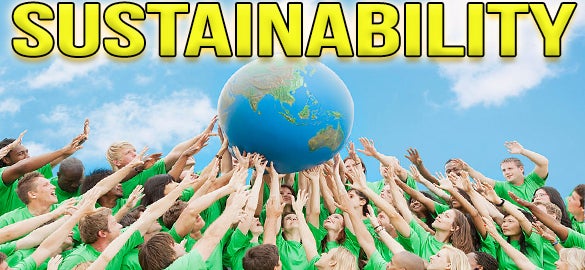 This article outlines settled thinking, settled thinking, settled science. Climate change is said to be settled science. It isn’t! I mean, they say it’s a consensus of science. You’ve heard me say I don’t know how many times, there’s no consensus in science. Not up for a vote. And it isn’t settled. A lot of thinking is said to be settled, but it isn’t!
This article outlines settled thinking, settled thinking, settled science. Climate change is said to be settled science. It isn’t! I mean, they say it’s a consensus of science. You’ve heard me say I don’t know how many times, there’s no consensus in science. Not up for a vote. And it isn’t settled. A lot of thinking is said to be settled, but it isn’t!
Now, Democrats and leftists would have us all believe that we are running out of natural resources. And so we have to limit the use of them in order to make them last. But it is proven over and over again in real life with evidence that any pair of eyeballs can see that the human mind and economic growth increases natural resources!
I mentioned Paul Ehrlich earlier. When he wrote his book, The Population Bomb, an economist, I think it was the University of Maryland — I’m not sure where — famous man now deceased, his name was Julian Simon. They made a bet. There have been books written about this bet. Long articles written about the bet. If you search Google or DuckDuckGo, wherever you search “Julian Simon and the bet” and you’ll learn everything you need to know about it.
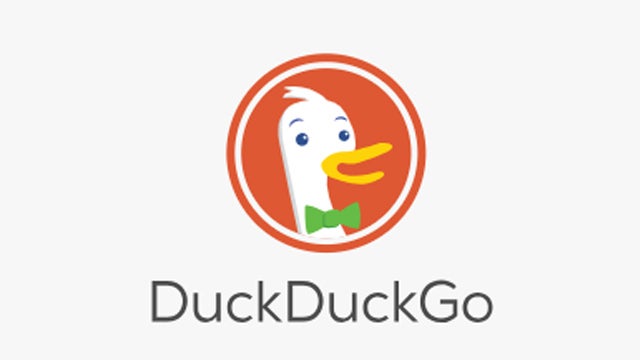 But, in a nutshell, Julian Simon bet Ehrlich that over a period of years in the future — and they picked a bunch of natural resources like aluminum and nickel and tungsten. Simon’s point was that as the population grew, so would the supply of these resources. Now, Ehrlich said, “Well, you’re crazy! If the population’s gonna grow, those resources are gonna deplete!” And that was the source of the bet.
But, in a nutshell, Julian Simon bet Ehrlich that over a period of years in the future — and they picked a bunch of natural resources like aluminum and nickel and tungsten. Simon’s point was that as the population grew, so would the supply of these resources. Now, Ehrlich said, “Well, you’re crazy! If the population’s gonna grow, those resources are gonna deplete!” And that was the source of the bet.
And on every one of them, Julian Simon won. Paul Ehrlich was wrong about every item in the bet. Every natural resource over a period of years defined in the bet, as the population grew, so did the supply. It’s true of our food supply. The population is expanding geometrically, folks, and so is our food supply. Starvation is down. Hunger is down. Poverty is declining.
One of the great unwritten and untold stories in the world right now is the decline worldwide of poverty, and one of the primary reasons for it is the growth of human populations and the adaptation of various forms of capitalism in the production of food that is creating enough.
Now, some of you listening to me who have a leftist tilt think that what I have just said has got to be made-up rotgut, and I’m telling you, it isn’t! Poverty is on a rapid decline. Poverty worldwide has never been lower expressed as a percentage than it is today. And the population has been growing. The reasons for this have been exposed in Julian Simon’s bet with Paul Ehrlich and they are exposed in the thinking behind this piece at the American Institute for Economic Research.
We do not need to conserve natural resources because we’re running out of them. We do not need to limit the use of natural so-called resources ’cause we’re running out of them because they won’t last because it’s the exact opposite. It has been proven the human mind and economic growth increase natural resources. It’s all about need. It’s all about need and desire and innovation and creativity.
The natural resource of oil and gas — I’ve used these examples earlier in the program — we have expanded the supply! We have expanded the supposedly limited, finite supply of oil and natural gas. We have more of it than we’ve ever had before. How is this possible? As the population has grown and as more and more people buy cars and drive cars and as the price of oil has plummeted and people have been able to drive more cheaply and air-condition their homes more commonly, have been able to afford the greater use of energy, how in the world has the supply grown?
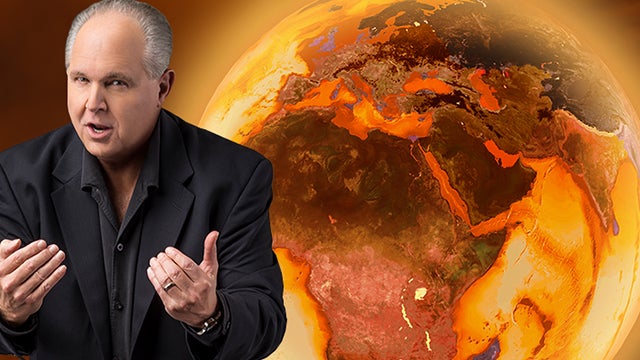 To a closed-minded leftist, it’s impossible. It doesn’t make any sense. Well, the United States has become the number one producer of oil and gas in the world. It isn’t Saudi Arabia with their riches of oil buried beneath desert sands. We have now removed our dependence on the Middle East because the human mind developed fracking and other ways to find oil and natural gas where previously it was impossible to get it.
To a closed-minded leftist, it’s impossible. It doesn’t make any sense. Well, the United States has become the number one producer of oil and gas in the world. It isn’t Saudi Arabia with their riches of oil buried beneath desert sands. We have now removed our dependence on the Middle East because the human mind developed fracking and other ways to find oil and natural gas where previously it was impossible to get it.
We knew it was there, but we couldn’t get it. In other words, we’ve learned how to drill sideways. We’ve learned how to drill through rock, economically and affordably and extract what’s always been in there. We have expanded the natural resources of oil and natural gas. We have actually made more of it.
BREAK TRANSCRIPT
RUSH: Now, follow me on this, folks. Economic growth prevents the depletion of resources. It’s the exact opposite of what many people would like you to believe. Many people think economic growth is gonna lead to the depletion of sources. More people accessing finite supplies means supplies dwindling. It’s the exact opposite. The United States is living proof of this each and every day. Western civilization is proof of this every day.
Economic growth prevents resource depletion by supplying humanity with greater quantities of the ultimate resource itself, human minds. More and more open, curious, working human minds overcome more than anybody would ever dream.
Now, have you ever heard of the Malthusian trap? You know what the Malthusian trap is? People like Ehrlich and leftists believe it. And essentially the Malthusian trap is — there’s another name for it called the population trap. The Malthusian trap — leftists believe it — is a condition where excess population, too many people, would stop growing because of a shortage of food. More people, more people eating more food, depleting the food supply, meaning the population would eventually slow down.
It’s named for Thomas Robert Malthus who suggested that while technological advances could increase a society’s supply of resources like food and improve the standard of living, at some point population growth would wipe out the abundance of various resources.
And that has been the foundation of beliefs like Ehrlich and others who believe that more and more people lead to the death of people because the end of resources. And it’s the exact opposite, folks. The United States is living, waking proof of it each and every day. More and more minds, creative minds surviving into adulthood interacting with each other, creating, producing, inventing, discussing, this is the ultimate resource of the planet.
BREAK TRANSCRIPT
RUSH: For the human mind to work as the greatest natural resource, it has to be free. And that’s the rub. It has to be free. And even in the United States today, where there is an ongoing movement toward propagandizing the young and indoctrinating the young, there remains free mind, people that remain immune to it.
This is why I think it’s so important for all parents to make sure that their kids’ minds remain open and curious, learn how to think, resist apocalyptic, pessimist things, resist indoctrination and propagandizing and just strive to remain free and maintain a society of free people.
And the article goes on to say that one of the greatest assistance or aides to this whole process of creative human minds is immigration, legal immigration. Immigration that is born of serious assessment of applicants who want to come to America. You choose the best. You choose the people who are the most accomplished or show the most potential. That really, really want to come, really, really want to be Americans.
 It is theorized that new arrivals of anything shake it up. Everybody gets settled, everybody gets set in their ways, everybody has a comfort level. I told the story, Merrill Lynch back in 1980, San Francisco, if you had a job interview with them they asked you the question, “How much money do you want to earn here?” If you gave them a number, you were disqualified. You didn’t know it, but you were. They figured that if you said, “I want to make two million a year.” They figured if you did, you’d stop working when you made two million because that was your comfort level.
It is theorized that new arrivals of anything shake it up. Everybody gets settled, everybody gets set in their ways, everybody has a comfort level. I told the story, Merrill Lynch back in 1980, San Francisco, if you had a job interview with them they asked you the question, “How much money do you want to earn here?” If you gave them a number, you were disqualified. You didn’t know it, but you were. They figured that if you said, “I want to make two million a year.” They figured if you did, you’d stop working when you made two million because that was your comfort level.
The correct answer was anything other than that. “I want to make as much as I can or I’m here to maximize every opportunity that comes along. I don’t know how much it’s gonna be worth.” That was the correct answer. Well, everybody has their comfort level. Every human being does, so you shake it up with new arrivals. This why when you’re in a group, you’re at a company and somebody new comes in and they’re all enthusiastic and they can’t wait to get started, but you’ve been there 10 years, five years, whatever, and you look at this new arriving enthusiasm and you kind of smile and you maybe even get a little cynical.
“Yeah, well, they’ll learn,” he-he, “they’ll learn.” But you need it. You need newly arriving enthusiasm. You need people showing up to whom it’s all brand-new, to whom it’s all exciting, to whom there is no upward limit. And they, in turn, inspire other kinds of people to reenergize and get in gear. And that’s one of the great functions of legal immigration or any other system that funnels newness.
This is what’s great about younger generations getting older and finally maturing and entering the workforce. But if they’re not taught in this manner, if they’re not being prepared, if they arrive at adulthood feeling America has no future because it’s racist, sexist, bigoted or it’s unfair or what have you, then nobody is served, particularly them. That’s why optimism and can-do and enthusiasm are crucial, common, everyday ingredients to getting things done.


